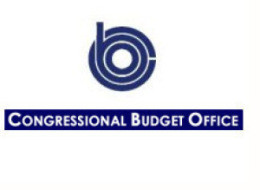 There’s intriguing fine print in the latest CBO analysis on the impact of the Affordable Care Act (ACA) on employer-sponsored health insurance in the U.S. CBO finds there will be 3 to 5 million working Americans without employer-sponsored health insurance due to the implementation of the ACA, according to the report, CBO and JCT’s Estimates of the Effects of the Affordable Care Act (ACA) on the Number of People Obtaining Employment-Based Health Insurance. Originally, the CBO and Joint Committee on Taxation (JCT) estimated that the number of people obtaining health insurance coverage through their employer would be 3 million people lower in 2019 under the ACA. The two agencies have revised their model up to 5 million people.
There’s intriguing fine print in the latest CBO analysis on the impact of the Affordable Care Act (ACA) on employer-sponsored health insurance in the U.S. CBO finds there will be 3 to 5 million working Americans without employer-sponsored health insurance due to the implementation of the ACA, according to the report, CBO and JCT’s Estimates of the Effects of the Affordable Care Act (ACA) on the Number of People Obtaining Employment-Based Health Insurance. Originally, the CBO and Joint Committee on Taxation (JCT) estimated that the number of people obtaining health insurance coverage through their employer would be 3 million people lower in 2019 under the ACA. The two agencies have revised their model up to 5 million people.
Critics of the CBO/JCT estimates generally forecast a much higher number of U.S. health citizens who are covered today by employer-based health insurance but would lose coverage post-ACA implementation. The CBO/JCT’s argument for their (lower) expectation is based on existing and new financial incentives that ACA brings to employers who provide health insurance to their employees. The CBO also points to the State of Massachusetts which, under then-Governor Romney, implemented MassCare for the state’s health citizens. Since MassCare’s introduction, the number of employed people gaining health insurance coverage through the workplace actually grew since reforms were implemented in the state.
The report talks about how, under certain scenarios, employers dropping health insurance, and thus people onto the health insurance exchanges, could reduce the deficit. That is because these employers would then lose their tax-favored treatment of health insurance costs. If CBO/JCT’s assumption that employers would shift the sums they paid into health insurance premiums into the employee’s pay-check, then that money would be taxed at the worker’s usual Federal IRS tax rate. In aggregate, those tax collections could reduce the deficit, the logic goes. The calculation is $351 billion worth of tax revenues borne by workers.
The CBO/JCT bottom-line: “A sharp decline in employment-based health insurance as a result of the ACA is unlikely and, if it occurred, would not dramatically increase the cost of the ACA.”
Health Populi’s Hot Points: Uncertainties abound in the question of “whither employer-sponsored health insurance post-ACA?” Detractors of the Affordable Care Act will no doubt question the authenticity of the CBO/JCT projections and, certainly, the assumptions that underpin the financial model. But one thing is certain: we all should save more to pay for our health care going forward. Regardless of the scenario(s) that could play out, it is safe for each U.S. health citizen to assume there will be greater premium sharing, higher out-of-pocket costs, and more consumer “empowerment” — that is responsibility — for doing our own bidding in the health market, in health insurance exchanges, at the pharmacy, and in growing burdens of caregiving of aging parents and growing children. And, of course, ongoing self- and wellness care in Healthcare DIY mode…




 Interviewed live on BNN Bloomberg (Canada) on the market for GLP-1 drugs for weight loss and their impact on both the health care system and consumer goods and services -- notably, food, nutrition, retail health, gyms, and other sectors.
Interviewed live on BNN Bloomberg (Canada) on the market for GLP-1 drugs for weight loss and their impact on both the health care system and consumer goods and services -- notably, food, nutrition, retail health, gyms, and other sectors. Thank you, Feedspot, for
Thank you, Feedspot, for  As you may know, I have been splitting work- and living-time between the U.S. and the E.U., most recently living in and working from Brussels. In the month of September 2024, I'll be splitting time between London and other parts of the U.K., and Italy where I'll be working with clients on consumer health, self-care and home care focused on food-as-medicine, digital health, business and scenario planning for the future...
As you may know, I have been splitting work- and living-time between the U.S. and the E.U., most recently living in and working from Brussels. In the month of September 2024, I'll be splitting time between London and other parts of the U.K., and Italy where I'll be working with clients on consumer health, self-care and home care focused on food-as-medicine, digital health, business and scenario planning for the future...